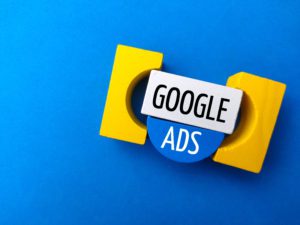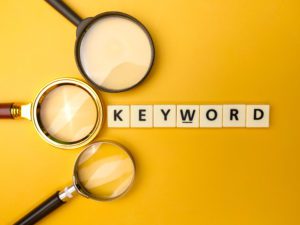In the world of digital marketing, one name towers above the rest – Google. As the internet’s leading search engine, Google offers advertisers a vast platform to reach their target audience. Google AdWords, a pay-per-click (PPC) advertising platform, is a key player in this domain. But what is PPC, and how does it tie into Google AdWords? Let’s delve into the world of AdWords PPC and find out.
Understanding Google AdWords
Google AdWords, now known as Google Ads, is an online advertising platform where businesses pay to display their ads. The key mechanism behind AdWords is PPC, or pay-per-click, advertising. This means that businesses only pay when users click on their ads, thus bringing us to the answer to our first question: Yes, AdWords is indeed a PPC platform.

Unraveling the Concept of PPC
So, what exactly is PPC in Google AdWords? Pay-per-click is an advertising model where advertisers pay a fee each time their ad is clicked. Instead of earning visits organically, businesses can buy visits to their sites. With Google Ads, your ads can appear on Google Search Results Pages (SERPs) and other Google properties. The amalgamation of Google’s reach and PPC’s precision creates a potent marketing tool.
The Anatomy of a PPC Ad Campaign
A PPC ad campaign in Google AdWords involves creating ads and bidding for keywords. The ads are displayed on Google SERPs and Google’s partner sites. When a user performs a search with your chosen keyword, Google enters your ad into an auction with other advertisers who’ve bid on the same keyword. The winners, whose ads get displayed, are determined by several factors, including the quality and relevance of their ads and the size of their keyword bids.
Exploring Pay-Per-Click Advertising Examples
Successful PPC ad campaigns typically share a few common traits – they’re highly relevant to the keyword, they target a specific audience, and their landing pages provide clear and compelling calls to action. For example, if you search for ‘buy running shoes online,’ you might see an ad for a sports retailer, with a headline like ‘Top Quality Running Shoes Online’ and a description emphasizing a wide selection, competitive prices, and easy returns. Clicking the ad would take you directly to a page where you can browse and buy running shoes.
The Cost Factor: Understanding CPC
In PPC campaigns, the Cost-per-Click (CPC) is how much you pay each time a user clicks on your ad. This cost varies greatly depending on the keywords you target, your bid strategy, and the competition in your industry. CPC is a crucial factor to consider in your AdWords PPC strategy as it directly affects your campaign’s return on investment.
The Art and Science of Calculating Cost Per Click
Calculating CPC isn’t as daunting as it may seem. It primarily involves dividing the total cost of your clicks by the total number of clicks. For instance, if you pay $100 for 50 clicks, your CPC would be $2. Knowing your CPC can help you manage your campaign budget effectively and decide which keywords provide the most value.
PPC Marketing: Maximizing Returns and Reducing Costs
Optimizing your PPC campaigns is a sure-fire way to get more bang for your buck. Techniques to reduce your CPC include refining your keyword list, improving your Quality Score by creating relevant, high-quality ads, and using bid adjustments to control when and where your ads appear. And yes, with careful planning and strategic execution, it’s possible to make money with pay-per-click.
By driving targeted traffic to your site and converting these visits into sales or leads, your AdWords PPC campaign can be a profitable investment. A careful analysis of keyword performance, regular adjustment of bid strategy, and continuous improvement of ad relevance and landing page quality are key components of a successful PPC marketing strategy.
How to Get Started with PPC Advertising

Google AdWords is a powerful tool, and when used correctly, it can significantly boost your online visibility and drive conversions. To get started with PPC advertising, begin by defining your marketing goals. Then, conduct thorough keyword research to understand what your target audience is searching for. Set up your ad groups, craft compelling ads, and don’t forget to optimize your landing pages. Monitor your campaigns closely and don’t be afraid to adjust your strategy based on performance.
Define your campaign goals:
- Determine the purpose and objectives of your PPC campaign.
- Understand what you want to achieve and how PPC can help you reach those goals.
Conduct keyword research:
- Use tools like Google Keyword Planner to identify relevant keywords.
- Analyze search volume, competition, and potential bid investments.
- Focus on long-tail keywords that align with your target audience and have manageable competition.
Group keywords and create ad groups:
- Organize related keywords into groups based on your campaign’s target audience.
- Prepare an excel table to track and manage keyword data effectively.
- Create specific ads for each ad group to increase relevance and engagement.

Add negative keywords:
- Identify and include negative keywords that are unrelated to your ads.
- This helps filter out irrelevant audiences and prevents wasted ad spend.
Calculate your budget:
- Plan your budget by determining the maximum cost per click (CPC) you can afford.
- Consider factors such as profit margins, conversion rates, and overall campaign budget.
- Use the formula: Max CPC = (profit margin per customer) * (1 – profit margin) * (conversion rate).
Analyze competitors:
- Gain insights into your competitors’ PPC strategies.
- Use Google Ads’ Auction Insights to understand their performance and campaign approaches.
Craft compelling ad copy:
- Write engaging ad text that resonates with your target audience.
- Utilize first-page advertising techniques to optimize limited ad space.
- Incorporate keywords and highlight unique selling points (USPs) and promotions.
Include clear CTAs:
- Add a concise and meaningful call-to-action (CTA) in your ad copy.
- Direct users on what action to take next to achieve the desired conversion.

Utilize ad extensions:
- Enhance your ads with extensions to provide additional information and credibility.
- Consider using sitelink extensions to help users navigate and take relevant actions.
Remember, following these steps can increase the chances of your website ranking well in search results. Stay updated with the latest news and discussions with seothailand for continuous improvement.
Conclusion
AdWords PPC is a multifaceted field. Despite the apparent complexity, understanding its fundamentals, and knowing how to leverage them to your advantage can result in successful ad campaigns. It takes time, testing, and patience to perfect your strategy, but with careful execution and ongoing optimization, PPC advertising on Google AdWords can be a tremendous asset to your digital marketing efforts.
FAQs
- Is AdWords a PPC? Yes, Google AdWords (now Google Ads) is a platform that primarily operates on the pay-per-click (PPC) model.
- What is PPC in Google AdWords? Pay-Per-Click (PPC) in Google AdWords is an online advertising model where advertisers pay a fee each time their ad is clicked on Google’s search result pages or other Google properties.
- What is a PPC ad campaign? A PPC ad campaign is a digital marketing strategy where advertisers place ads on an advertising platform and pay a fee each time one of their ads is clicked.
With the ever-evolving nature of digital marketing, staying updated and adapting your strategies is crucial. So now that you’ve armed yourself with this knowledge, why not try your hand at creating your very own AdWords PPC campaign? Who knows, you might just find your brand’s next big break in the digital realm!